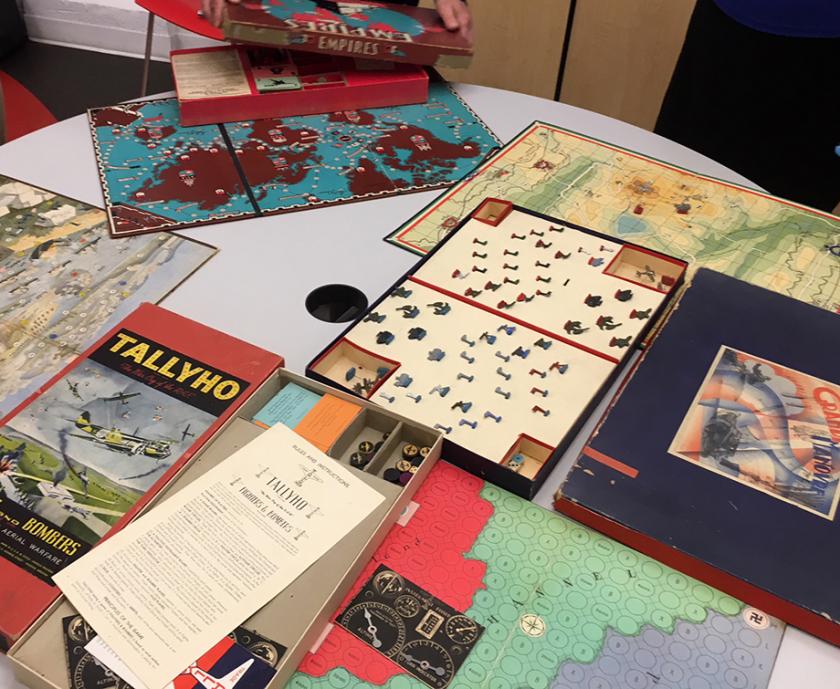
iSchool faculty and alumni played an active role in the Playful by Design Spring Symposium, which took place April 5-7 on the Urbana campus. The symposium, organized by the Playful by Design Research Cluster, included presentations and panel discussions as well as a new exhibit at the Spurlock Museum, movie screening, keynote address, and games and gaming make-a-thon. The event was sponsored by the iSchool, Illinois Informatics Institute, Center for Innovation in Teaching & Learning, Spurlock Museum, CU Community FabLab, and Illinois Program for Research in the Humanities.
Teaching Associate Professor David Dubin was a featured speaker at the opening event at the Spurlock Museum on April 5. Assistant Professor Elizabeth Hoiem and Associate Professor Jerome McDonough joined Dubin on the gaming history panel on April 6, and iSchool alumni Kaity Bequette (MS '14) and Jeff Ginger (PhD '15) contributed to the symposium and the April 7 make-a-thon on behalf of CUDO Plays and the Community FabLab, respectively.
On the panel, Hoiem presented the puzzles, alphabet cards, word games, and science games that nineteenth-century educators used to make learning fun for young people. Hoiem’s research investigates the beliefs of the time about social class and how children's games reflect cognitive theories supporting that children learn through the senses. McDonough addressed the history of computer games and the problems inherent in trying to preserve computer games as complex technological, and social, objects. His research focuses on the sociotechnical aspects of digital libraries, with a particular interest in issues of metadata and description as well as digital preservation of complex media and software.
Dubin presented, "Central Illinois Games and Gamers: Some Highlights of the Last Half Century," which traced connections between local hobby gaming communities in Champaign-Urbana, Normal, and Decatur to research and educational development programs on the University of Illinois at Urbana-Champaign and Illinois State University campuses from 1960 to the present.
"In my talk, I discussed how concerns of the time (like the Cold War and the U.S. involvement in Vietnam) and hopes for a brighter future influenced the development of both tabletop games and early computer games. Illinois and ISU students, faculty, academic professionals, alumni, local businesses, and neighbors have collectively created a rich and thriving network of interlinked gaming communities and game development groups," Dubin said.
Dubin, whose research focuses on the foundations of information representation and description, is the organizer of the iSchool Gamers, a weekly gaming meeting for students, faculty, staff, alumni, and friends of the iSchool. His Summer I class, Library Gaming Programs (IS 590LG), covers the design, implementation, assessment, marketing, and sustainment of gaming programs in public, school, and academic libraries as well as other community or institutional settings. The class surveys games for different demographic groups and explores methods for the integration of gaming with other library programming.

